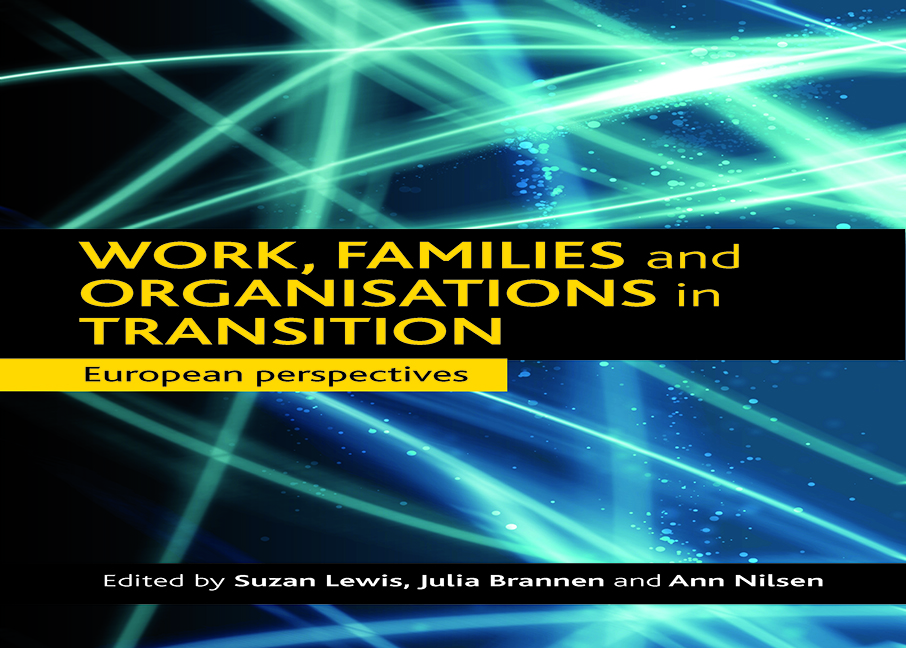Book contents
- Frontmatter
- Dedication
- Contents
- Acknowledgements
- Notes on contributors
- one Work, family and organisations in transition: setting the context
- two Research design and methods: doing comparative cross-national research
- Part One Public sector organisations
- Part Two Private sector organisations
- Part Three Comparisons
- Appendix
- References
- Index
five - Organisational social capital and its role in the support of working parents: the case of a public social assistance agency in Bulgaria
Published online by Cambridge University Press: 16 July 2022
- Frontmatter
- Dedication
- Contents
- Acknowledgements
- Notes on contributors
- one Work, family and organisations in transition: setting the context
- two Research design and methods: doing comparative cross-national research
- Part One Public sector organisations
- Part Two Private sector organisations
- Part Three Comparisons
- Appendix
- References
- Index
Summary
In Europe in recent years there has been a growing concern about the quality of integration between work and family life (Eurostat, 2001; Lewis, 2001; Rapoport et al, 2002; Webster, 2004). Fundamental changes in work organisations and in the nature of work have set new dilemmas for employees in achieving their career goals and managing their wider lives. One major route to the reconciliation of the conflicting demands from the workplace and the home is perceived in many European countries to be flexible working arrangements: most often reduced working hours, flexitime and home working (Lewis, 2003b; Peper et al, 2005). In contrast, the reconciliation of work and family life is not a pressing issue that is raised in the academic and policy debate in Bulgaria. While the declining birth rate is causing public concern, it is attributed to the rising poverty and job insecurity that accompany the market reforms. There is a very low rate of parttime work (about 5%) and a large informal ‘shadow’ sector where higher pay comes as a result of long working hours and low social protection (Kovacheva, 2002). How do young parents in Bulgaria manage to integrate paid work in the market economy with unpaid childcare at home in these conditions?
Social capital may be an important factor in the work and family equation in this context. This chapter therefore sets out to address this question by applying a social capital perspective to the analysis of social interactions in a specific workplace. Methodologically, the analysis builds on a case study of a public agency for social assistance in a large Bulgarian city. Like the other case studies discussed in this book, it was carried out in 2004–05. The chapter starts with a discussion of the concept of social capital as a tool for understanding the relationships of trust and support that allow individuals and communities to pursue their work and family goals more effectively. It then proceeds with a description of the organisational context for the formation and mobilisation of social capital in the case study organisation. The chapter examines the structural and value components of social capital in the workplace and ends with a discussion of how these are affected by organisational and social change.
- Type
- Chapter
- Information
- Work, Families and Organisations in TransitionEuropean Perspectives, pp. 63 - 78Publisher: Bristol University PressPrint publication year: 2009

